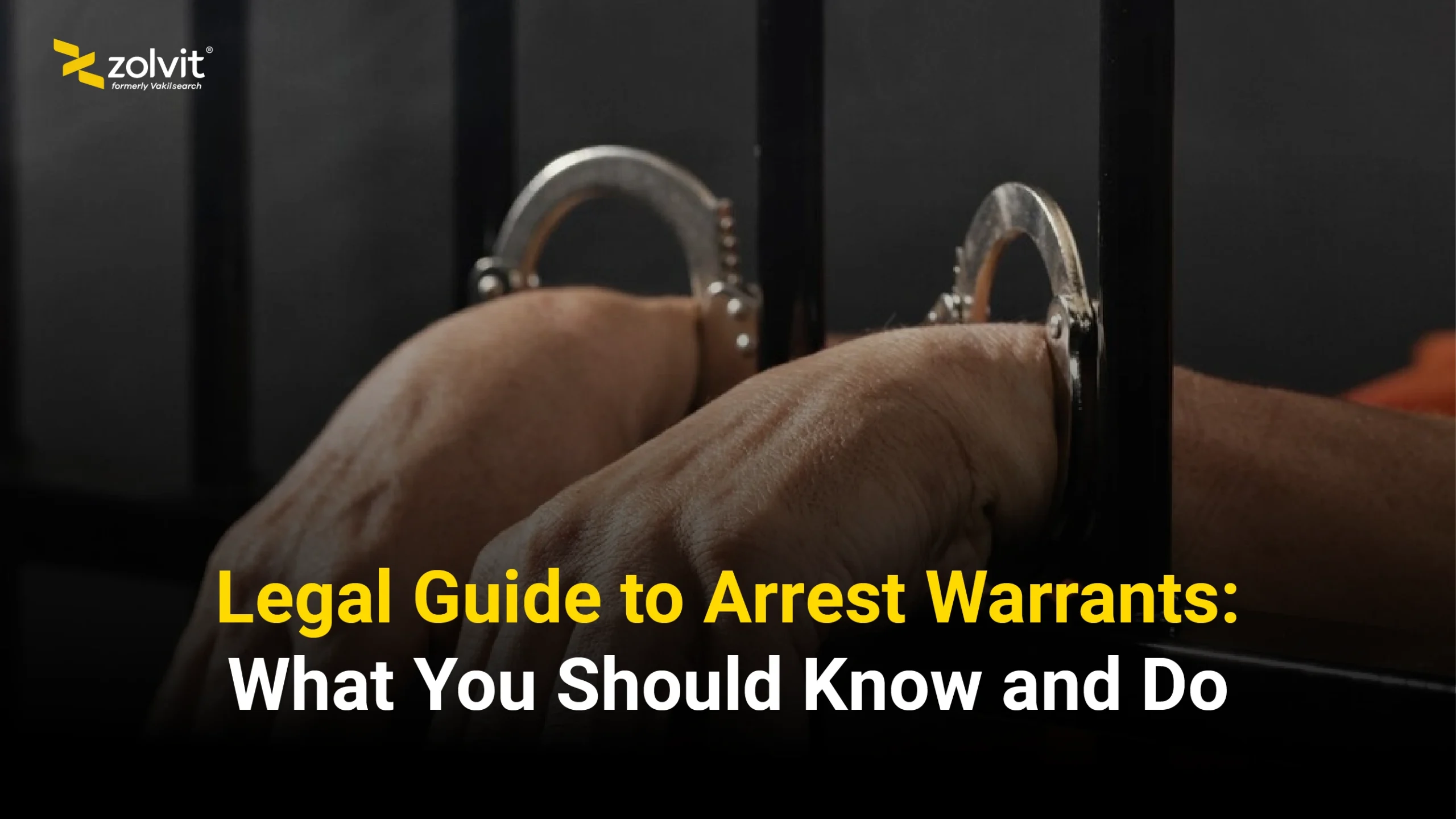Receiving notice of an arrest warrant can be a distressing experience. It’s crucial to understand your rights and the legal procedures that follow. In this comprehensive guide, we will discuss the legal framework surrounding arrest warrants in India, your rights, and the steps you should take if a warrant has been issued against you.
What is Arrest Warrants?
In India, the issuance of an arrest warrant is governed by the Code of Criminal Procedure (CrPC), 1973. Sections 70 to 81 outline the conditions under which warrants can be issued and the procedural safeguards in place. An arrest warrant is a legal document issued by a magistrate that authorises law enforcement to apprehend an individual accused of a crime.
When is an Arrest Warrant Issued?
Arrest warrants are typically issued in cases where:
- A cognisable offence has occurred, meaning that police can arrest without a warrant.
- A non-cognisable offence is involved, which requires a warrant for arrest (as per Section 41(2) of the CrPC).
Requirements of an Arrest Warrant
According to the CrPC, a warrant must meet certain legal criteria:
- It should specify the name of the person to be arrested.
- It must be issued by a competent authority, typically a judge or magistrate.
- The warrant needs to be based on reasonable grounds that justify the arrest.
Legal Rights When you Arrested
The Indian Constitution upholds your rights during an arrest in Article 22(1). This article guarantees that:
- You must be informed of the reason for your arrest at the time of apprehension.
- You have the right to consult a legal practitioner of your choice.
Steps to Take If an Arrest Warrant is Issued
If you learn that a arrest warrant has been issued against you, it’s essential to act promptly and appropriately. Here are the steps you should consider:
Step 1: Consult an Attorney
If advised by your attorney, voluntarily surrendering to the authorities can be beneficial. Here’s how to prepare for this step: If you have valid grounds to challenge the warrant, you may consider contesting it.
Step 2: Voluntary Surrender
Step 3: Contesting the Arrest Warrant
Step 4: Understand the Arrest Process
If you are arrested under a warrant, law enforcement must adhere to specific procedures to ensure the legality of the arrest. As per Section 75 of the CrPC, the arresting officer must inform you of the substance of the arrest and provide a copy of the warrant if requested. Failure to do so could render the arrest unlawful.
How Zolvit Services Can Assist You in Arrest Warrant?
Zolvit Services offers a comprehensive range of legal support tailored to individuals facing arrest warrants. Their expert team can provide:
- Legal Consultation: Understanding your rights and the implications of the warrant.
- Document Preparation: Assisting you in preparing all necessary documentation for voluntary surrender or contesting the warrant.
- Representation: Providing skilled representation in court if you choose to contest the warrant.
- Guidance: Helping you navigate the legal system effectively, ensuring that you are fully aware of your rights and options.
Conclusion
Facing an arrest warrant can be intimidating, but understanding the legal framework and your rights can empower you to take the appropriate steps. Always prioritise legal counsel when navigating these circumstances. By consulting with an experienced attorney, you can make informed decisions on how to proceed, whether that involves voluntary surrender or contesting the warrant. Remember, your rights are protected under the Indian Constitution, and knowing them can make a significant difference in your legal journey.
FAQs Related to Arrest Warrant Issued
What information will the arrest warrant contain?
The warrant must include your name, the offence you're being accused of, and details about the authority that issued the warrant. This helps ensure the warrant is valid and you are correctly identified.
If I voluntarily surrender, will I be granted bail immediately?
Not necessarily. Whether you're granted bail depends on the nature of the offence and the circumstances of your surrender. A lawyer can help you prepare for a bail hearing after your surrender.
How do I contest an arrest warrant if I believe it was issued by mistake?
To contest a warrant, you can file a motion in court asking for it to be quashed. Your lawyer will help you gather evidence and present a strong argument to have the warrant dismissed.
Will my family or friends be notified if an arrest warrant is issued?
Typically, the warrant is directed at you, and law enforcement will attempt to arrest you directly. However, if you voluntarily surrender, your lawyer can advise you on the best way to inform your family or friends about the situation.
What if I can’t afford to hire a lawyer when an arrest warrant is issued against me?
You have the right to free legal assistance if you cannot afford a lawyer. You can request a public defender or seek help from legal aid services that may be available in your area.
How long do I have to respond to an arrest warrant before the police take action?
Once a warrant is issued, there’s no specific grace period, and police can act immediately to arrest you. It’s best to take action right away by consulting a lawyer, as delaying could increase the likelihood of arrest.
Related Blogs:
- What to Do If You Are Arrested
- Understanding Bail and How Criminal Lawyers Can Help
- What Do Criminal Lawyers Do? A Complete Guide
Related Case Study:

